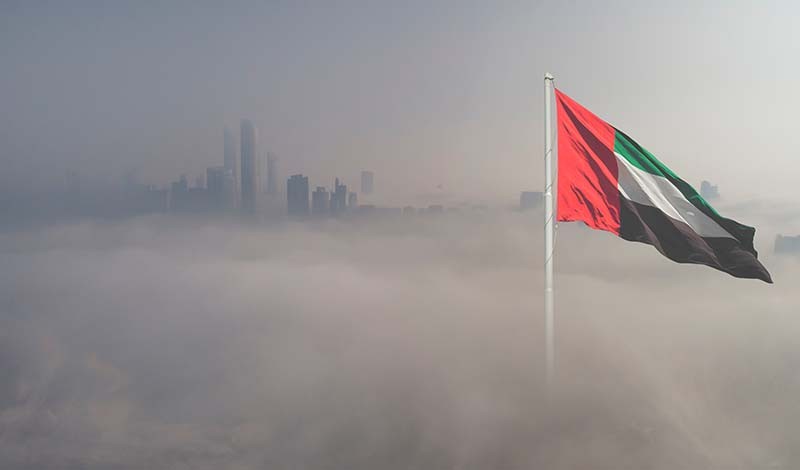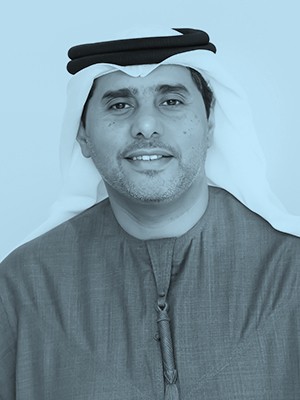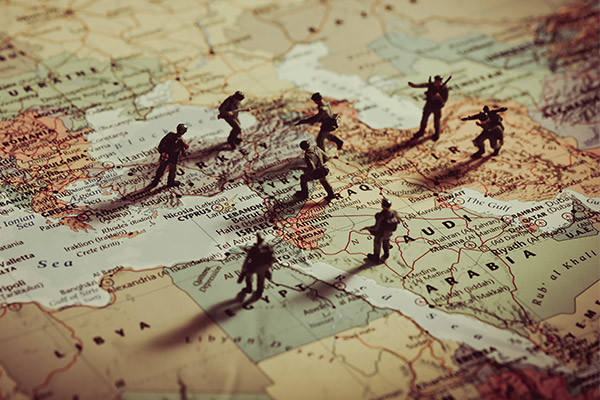Assessing Houthi Attacks on UAE: Propaganda Backfire
The missile attack early morning of 31st January was the third of what is designed to be a weekly attack on the UAE by Houthi terrorist group. The attack, like its previous attacks, was intercepted by UAE air-defense forces and resulted on an immediate raid by UAE air forces to destroy the rocket launcher in Al Jawf district.

- by Mohammed Abdul Rahman Baharoon ,
- Monday, 7th February, 2022
The missile attack early morning of 31st January was the third of what is designed to be a weekly attack on the UAE by Houthi terrorist group.
The attack, like its previous attacks, was intercepted by UAE air-defense forces and resulted on an immediate raid by UAE air forces to destroy the rocket launcher in Al Jawf district.
Considering the UAE air defense capability, and the distance the missiles need to travel from Al Jawf to UAE, it is easy to predict that the Houthis would expect a successful interception of their inbound missiles. The repeated attacks therefore have little ability to achieve any real military objectives. However, the objectives may not be really military.
Assessing Military Significance
- The attacks did not achieve any military gain for Houthis so far. It didn’t stop the coalition attacks on Houthis; it didn’t stop the military operation in Marib, and it didn’t lead to dismantling the Giant’s Brigades. Houthi can only claim that they have extended their theater of operation to reach the UAE, which is something they have claimed previously.
- The attacks also have directly resulted in the reinvolvement of UAE air forces in preforming raids inside Houthi controlled areas.
- The Houthi attacks also have triggered an international support to the coalition which resulted in supporting attacks in cities like Sana’a and Hodeida that the coalition has avoided for over two years.
- The attacks have failed in affecting any critical infrastructure in the UAE, let alone everyday life
- The attack has nonetheless explained the extent of Houthi missile arsenal and its developments which makes the case for the danger of extending the reach of Houthi’s to attack other countries involved in the coalition or supporting its operations such as Eritrea, Soudan, Egypt, or Bahrain. Houthis have also repeatedly threatened Israel but have never acted upon that threat
The Communication Significance
The lack of military significance indicates that they are used to achieve political objectives, rather than military, which explain their propaganda attributes including:
- 1. Houthis have cognitively chosen Monday, for three consecutive attacks at least, as a weekly time for the attacks. This is designed to create rhythm and a “Pavloff” conditioning effect. This is a tactic that is supposed to create anticipation and their for magnify the impact of any small attack.
- The Houthis have repeatedly used the attacks to warn business and tourist to “leave” the UAE, claiming the targeting of Expo or even Burj Khalifa, or even spreading rumors about explosions at Expo site are all part of that “terror tactic”. This has been repeated by media outlets supporting the Houthis in Iran and Lebanon and Iraq.
- The attack of 31st January used the visit of the Israeli president to the UAE as an excuse which is part of their anti-semetic and anti-US discourse designed to gain wider support within the radical support base.
The Outcomes of Houthi Attacks
There are several outcomes from the three attacks so far that are possibly not what the Houthis have planned for.
- The proliferation of Missile and UCAV technology will be a major agenda item for regional and global security. It will drive international action and Houthis will be at the heart of the discussion. Taliban owning Stinger Missiles will be a breeze compared to Houthi’s cruise missiles and long-range UCAV.
- The attacks provided unprecedent international support for coalition strikes inside Sana’a, in accordance with international law. Something the coalition have refrained from for a while.
- The role of Hodeida Port has also been brought back into the limelight. The confidence the Stockholm Agreement displayed in the Houthis, have eroded immensely because of issues like Safer, Rawabi and the trafficking of missile part. Hodeida is now obviously a major enabler for the expansion of the Houthi Missile and Drone Program.
- Most significantly the attacks have brought the issue of armed non-state actors as a security of global proportions. The terrorism designation is an interim means to address this, but the international community, particularly the Security Council will soon need to address the proliferation of armed non-state actors in the region more wholistically.

Mohammed Abdul Rahman Baharoon
Director General
Read More
Areas of Expertise
- Geo-strategy
- Reputation and soft power
- Public Policy and International Relations
Education
- Master’s degree in English Literature from Texas Tech University in 1995
- English Major from Kuwait University in 1987
Bio
He perused a career in media as a reporter for “Al Arabi” Magazine, Al Ittihad newspaper, and then Editor for Gulf Defense Magazine before starting as director of research at both and focusing on the interplay between Geostrategy and policymaking in governance, stability, capacity building, and future-proofing.
Mohammed has also worked as Deputy Director of Watani (UAE’s first initiative on National Identity) and is also a founding member of the board of “Bussola Institute” a think tank in Brussels that focuses on the changing and emerging aspects of the partnership between the EU and the GCC member states.
As part of his interest in the emerging geostrategic space of the Arabian Peninsula, Mohammed looks at Iran as part of the development of the area as a major trade artery. This development implies developing a sustainable relationship with its regional neighborhood on the Arabian Gulf, The Arabian Sea, the Red Sea, or the Mediterranean. Iran is a major component of that space and becoming more adaptable to the modernization process will allow it to become part of the future development of the region.

